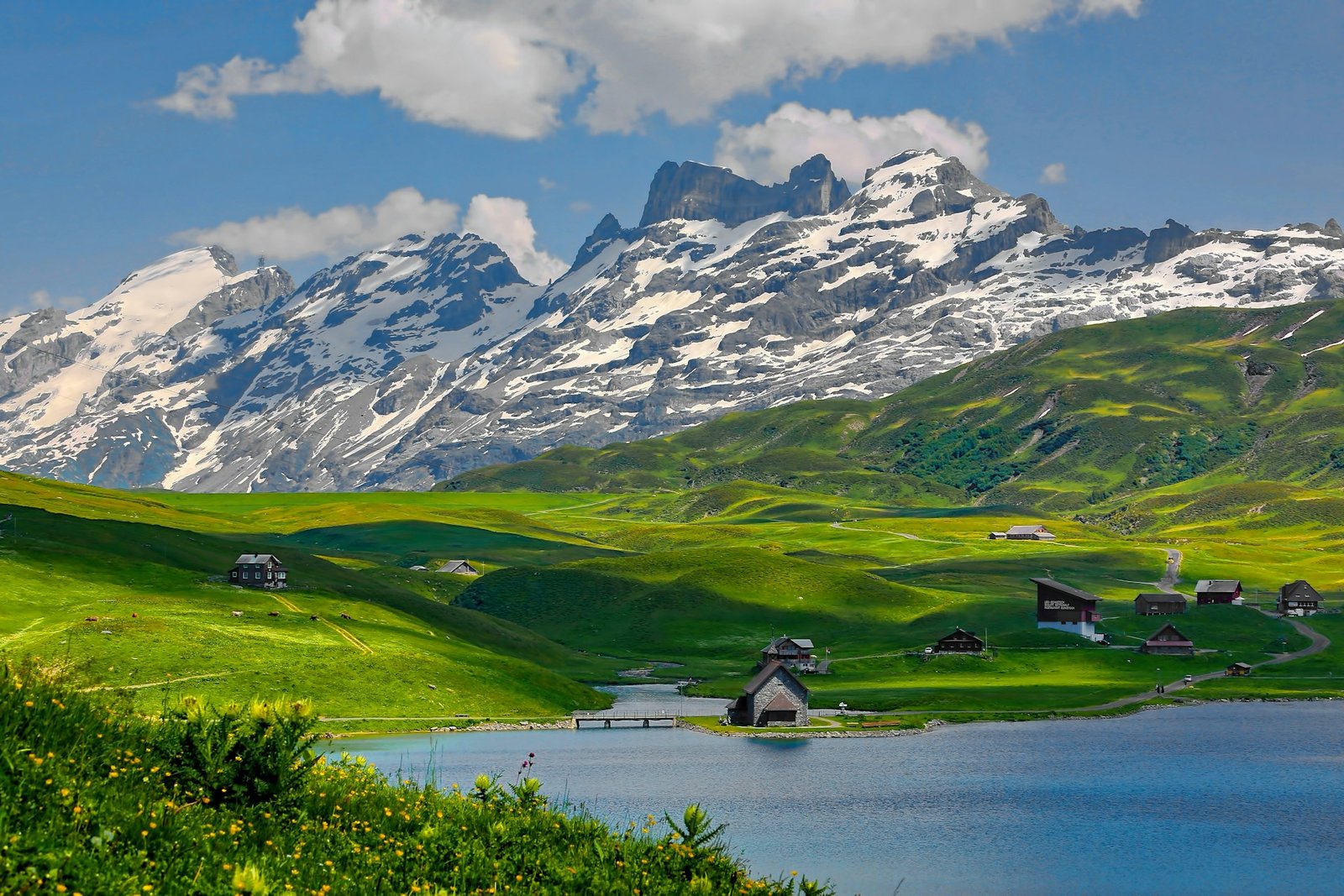Visiting Greece for the first time? Get ready for a journey through stunning landscapes, ancient history, and vibrant culture. Whether you’re dreaming of sun-soaked beaches, wandering through the ruins of the Acropolis, or diving into local cuisine, planning your first trip to Greece can feel a bit overwhelming. I’ve seen travelers struggle with timing their visit, budgeting for the islands, and even choosing which places to prioritize—Greece has so much to offer, after all.
In this guide, I’ll share everything I’ve learned about making the most out of your first Greek adventure. From the best times to visit, to cultural tips and hidden gems, you’ll have a clear path to planning a memorable trip. Whether you’re an island hopper, a history buff, or just want a relaxing vacation, you’ll find something here to make your trip smooth and unforgettable. Let’s get started!
Quick Guide to Visiting Greece for the First Time (For Busy Readers)
Short on time? No worries! Here’s a quick overview of must-know tips for first-time travelers to Greece. If this piques your interest, dive into the full post for detailed insights, hidden gems, and personalized itineraries!
- Best Places to Visit: Athens (don’t miss the Acropolis), Santorini for sunsets, Mykonos for nightlife, and Crete for stunning beaches and ancient ruins.
- Cultural Tips: Learn basic Greek phrases (it helps!), explore traditional villages like Pyrgi, and taste local dishes—moussaka and souvlaki are a must.
- Island Hopping: Famous islands like Santorini and Mykonos are great, but places like Naxos and Tinos offer a more authentic vibe.
- Unforgettable Experiences: Hike Samaria Gorge in Crete or charter a sailboat to discover secluded coves in the Aegean.
- Hidden Gems: Skip the crowded beaches and head to off-the-radar spots like Egremni Beach in Lefkada or Voutoumi in Antipaxos.
- Travel Tips: Take ferries between islands, explore mainland Greece by car, and avoid the midday sun—Greek summers can get really hot.
- Safety and Health: Greece is generally safe, but watch for pickpockets in tourist areas and always use sunscreen.
Want to make your trip truly memorable? My full blog post has detailed routes, personal recommendations, and insider tips that will transform your Greek getaway into an adventure of a lifetime!
Planning Your Dream Greek Adventure (Visiting Greece for the First Time)
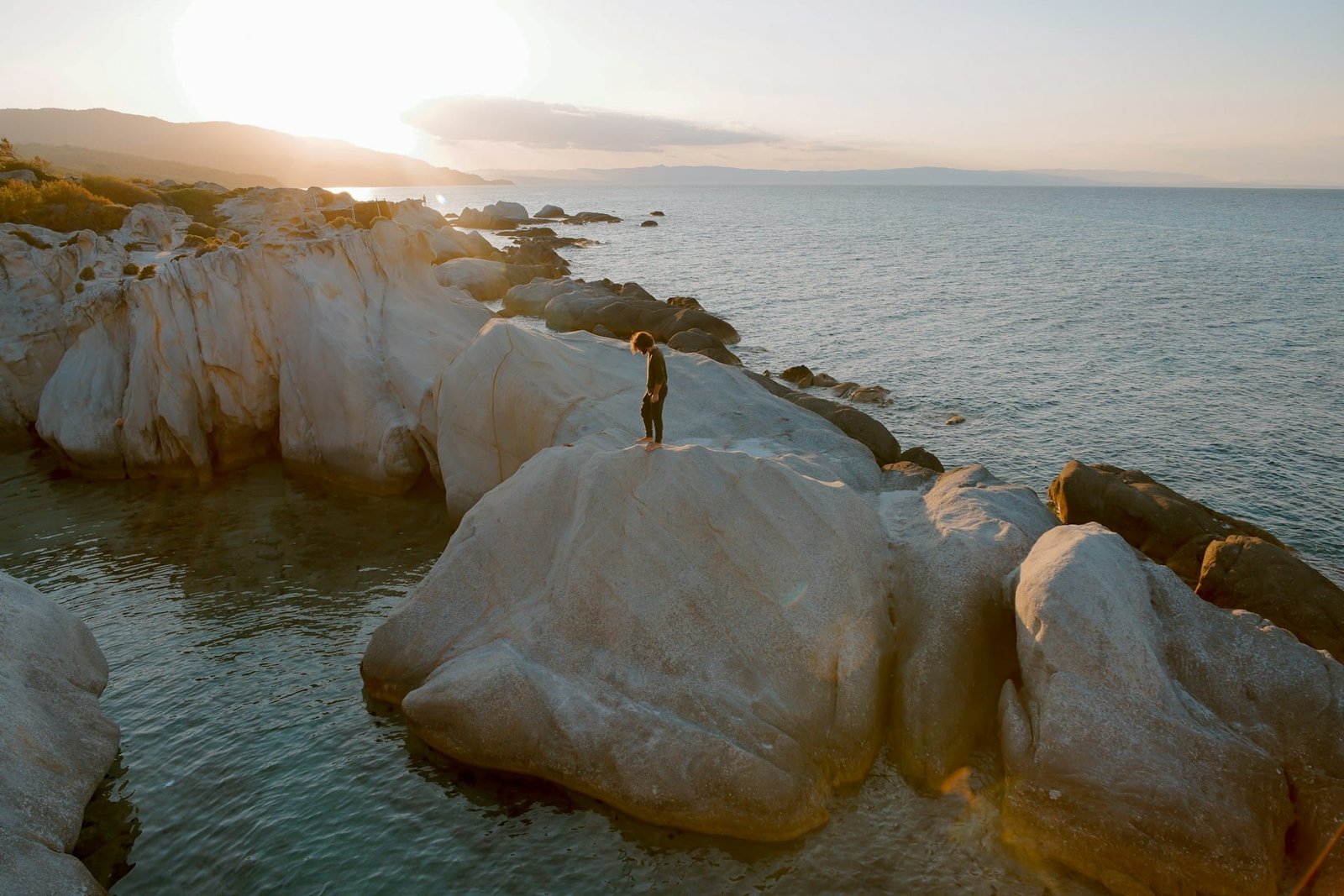
Planning your first trip to Greece can feel like a huge task, but I’ve got you covered. From deciding when to go to budgeting your trip, I’ve put together everything you need to make your Greek adventure unforgettable. I’ve seen how much easier it is when you have a clear plan, and this guide will help you map out your ideal trip without feeling overwhelmed. Whether you’re visiting Greece for the first time or looking for tips to make the most of your trip, you’ll find everything here to plan your dream getaway.
When to Visit Greece: Choosing the Perfect Season
One of the most important decisions you’ll make is when to visit Greece. The country has something to offer year-round, but the experience can vary greatly depending on the season. I’ve visited during the high season, shoulder season, and even off-season, and trust me, each comes with its own perks and considerations.
- Best time for beaches and sunshine (Summer: June to August)
If you’re chasing the sun, summer is your season. Between June and August, you’ll get long, hot days perfect for lounging on Greece’s iconic beaches or island hopping. This is the busiest time, so expect crowds, especially in hotspots like Santorini or Mykonos. I love this time for beach days, but if you’re looking for a quieter vibe, you may want to reconsider.
Why it works: The peak summer months offer guaranteed good weather for beaches and water activities. You’ll find it easier to get around by ferry, and every part of Greece is fully open for tourists. - Shoulder seasons for pleasant weather and fewer crowds (Spring: April-May, Fall: September-October)
For a more relaxed experience, the shoulder seasons are perfect. Spring and fall bring mild temperatures, fewer tourists, and more affordable prices. I’ve personally enjoyed visiting in September when the water is still warm but the crowds have thinned out. The landscape is also lush in spring, adding a fresh feel to any adventure.
Why it works: The weather is still fantastic, especially for sightseeing and light hiking, but the crowds and prices are much more manageable. It’s ideal if you want to explore the cultural and historical sites without the summer heat. - Off-season travel for budget-conscious travelers (November to March)
If you’re on a tight budget or want to experience a more authentic side of Greece, consider the off-season. Between November and March, tourism slows down dramatically, especially on the islands. You’ll find much cheaper flights and accommodation, but keep in mind that some attractions may be closed. I’ve found this time ideal for visiting the mainland, especially Athens and Thessaloniki, where life continues year-round.
Why it works: Off-season travel offers significant savings, and the quieter atmosphere gives you a more local experience. Just make sure you check which destinations are open, especially on the islands.
Visas and Entry Requirements (Make Sure Your Paperwork Is in Order)
Before you set off on your first adventure to Greece, it’s crucial to have all your travel documents in order. I’ve seen travelers face issues at the border due to simple mistakes, so double-check everything before you leave.
- Visa requirements for different nationalities (Schengen Area rules, e.g., for US/UK travelers)
Greece is part of the Schengen Area, so depending on where you’re coming from, you may not need a visa for stays up to 90 days. If you’re from the US, UK, Canada, or Australia, you can travel visa-free, but be mindful of the 90-day rule. If you’re unsure, check the Greek embassy’s website for up-to-date information.
Why it works: Getting your visa requirements right ensures a smooth entry into the country, avoiding any unnecessary stress at the airport. - Necessary travel documents (passport validity, travel insurance)
Make sure your passport is valid for at least six months from your date of entry—Greece is strict about this. I always recommend buying travel insurance, especially for international trips. I’ve tested it myself, and it gives peace of mind, especially in case of medical emergencies, lost luggage, or trip cancellations.
Why it works: Travel insurance can save you from unexpected costs, and having all your documents in order helps you breeze through customs. - Tips for a smooth arrival process (customs procedures, avoiding delays)
Greece’s airports can get busy, especially during peak season. I’ve found that arriving early for your flight, keeping all your documents handy, and packing your patience are key to a stress-free entry. Remember to declare any cash above €10,000, and follow customs rules to avoid delays.
Why it works: Preparing for the arrival process means you won’t be caught off guard, letting you start your trip without unnecessary hassles.
Budgeting for Your Greek Escape (Plan Your Spending Wisely)
No matter your travel style, you’ll want to budget wisely for your trip to Greece. Costs can vary significantly depending on when and where you go, but with some smart planning, you can enjoy the country without breaking the bank.
- Average costs of flights, accommodation, food, and activities (breakdown by season and region)
Greece can be surprisingly affordable if you plan ahead. Flights from the US or UK range from $500 to $1,200, depending on the season. Accommodations vary—expect around €50–€150 per night for mid-range hotels, but you’ll find cheaper options on less touristy islands. Food is a highlight, with meals averaging €10–€20 at a traditional taverna. Activities like museum visits and tours can cost around €5–€50.
Why it works: Knowing the average costs helps you avoid overspending and lets you plan your trip with confidence. - Strategies for saving money (booking flights in advance, staying in local accommodations)
I’ve saved hundreds of euros by booking flights months in advance and staying in local guesthouses instead of big hotels. Avoid peak-season travel if you can, and consider exploring less popular islands like Naxos or Syros for lower costs.
Why it works: Advanced planning and choosing local accommodations provide authentic experiences while staying within budget. - Tipping etiquette in Greece (restaurants, hotels, and taxis)
Tipping in Greece is simple: round up your bill or leave about 5–10% for good service at restaurants. It’s not mandatory but appreciated. For taxis, rounding up the fare is common. In hotels, tipping porters €1–€2 per bag works well.
Why it works: Knowing local customs, like tipping, makes you a more thoughtful traveler and enhances your experience with better service.
By planning your trip with these tips in mind, you’ll make the most of your budget, ensuring a fantastic experience without any unpleasant surprises.
Must-See Destinations in Greece (Tailor Your Itinerary to Your Interests)
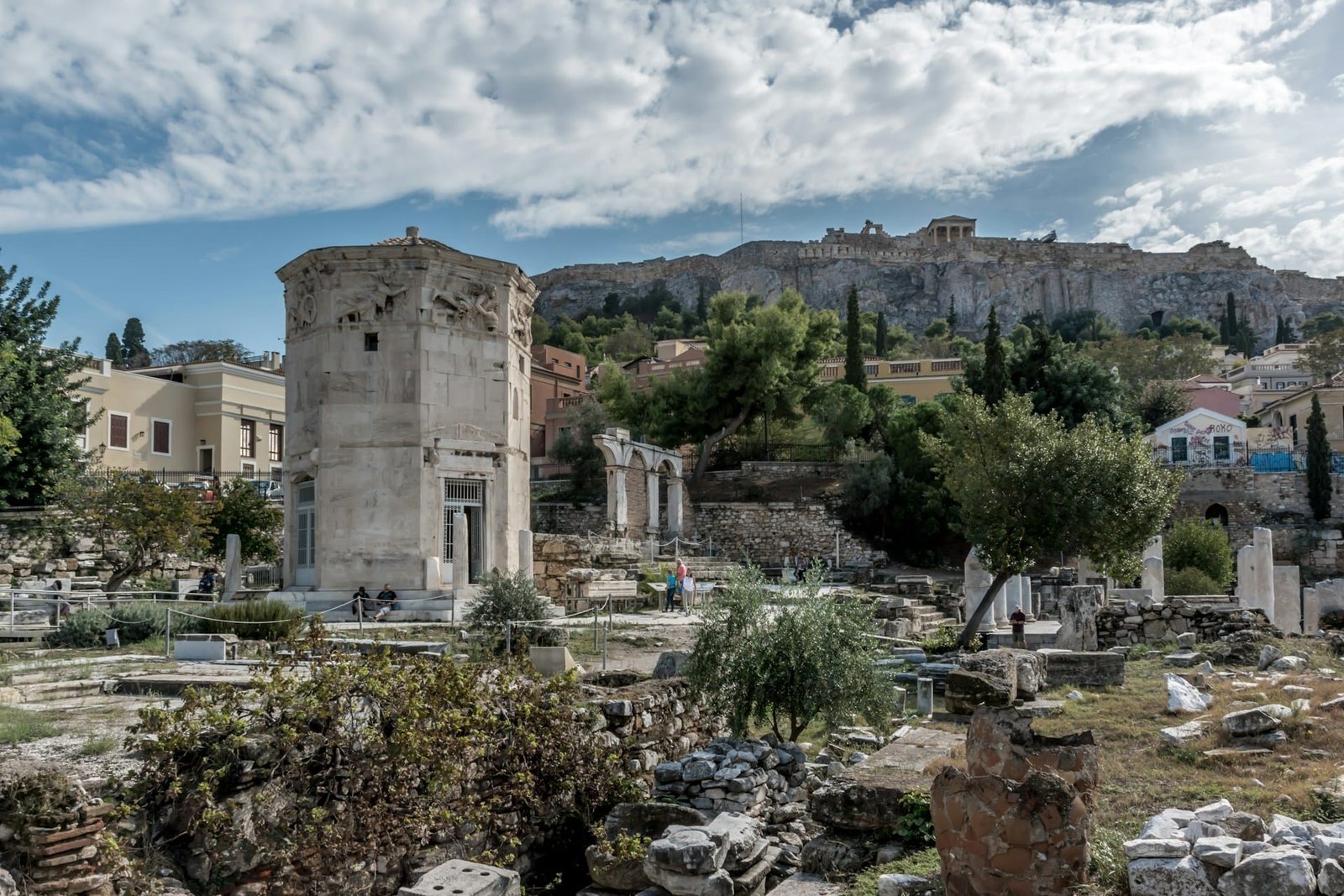
When visiting Greece for the first time, the number of incredible destinations can feel overwhelming. The best advice I can give is to tailor your trip to your interests. Whether you’re into ancient history, breathtaking landscapes, or beachy island vibes, Greece has it all. I’ve traveled across both mainland Greece and its iconic islands, and I’ll help you break down the must-see spots so you can plan your perfect itinerary.
Mainland Greece: A Journey Through History and Culture
Mainland Greece is where history and culture meet breathtaking scenery. If you love diving into the past while exploring beautiful landscapes, this part of Greece will fascinate you.
- Athens: Unveiling the Acropolis and other ancient wonders
Athens is often the starting point for first-time travelers. I recommend beginning with the Acropolis, home to the famous Parthenon. Standing atop the hill, you’ll get a sweeping view of the city that truly takes your breath away. Afterward, head to the National Archaeological Museum to understand the incredible history behind these ruins. I love Athens because, beyond the ancient sites, it has vibrant neighborhoods like Plaka, where you can wander through narrow streets and find charming cafes.
Why it works: Athens combines history with a lively modern atmosphere, making it an essential stop for first-timers. - Delphi: Delving into mythology and prophecy
A day trip from Athens, Delphi is a place where ancient myths come to life. Walking through the ruins, especially the Temple of Apollo, feels like stepping back in time. I visited Delphi on a sunny spring day, and the peaceful surroundings, combined with its historical significance, were a highlight of my trip. The views over the valley are stunning, and it’s a great spot for history buffs or anyone interested in Greek mythology.
Why it works: Delphi offers a unique combination of history, mythology, and natural beauty that’s perfect for your first time in Greece. - Meteora Monasteries: A spiritual and scenic marvel
The Meteora monasteries are something you need to see to believe. These centuries-old monasteries sit atop massive rock pillars, creating a surreal, almost otherworldly sight. I was amazed by how peaceful and awe-inspiring it was. The hike to the top of these monasteries is worth every step for the panoramic views alone. For first-time visitors, this is an unforgettable experience that blends spirituality and nature.
Why it works: Meteora combines breathtaking views with a deep sense of spirituality, making it a must-see for anyone visiting Greece. - The Peloponnese: Exploring rich history and diverse landscapes
The Peloponnese region is one of Greece’s most historically rich areas, home to ancient sites like Olympia, Epidaurus, and Mycenae. I love how diverse the region is—whether you’re visiting ancient theaters, hiking through mountain villages, or lounging on beaches, there’s always something new to explore. The Peloponnese feels less touristy than some other areas, making it ideal for those seeking a more authentic experience.
Why it works: The Peloponnese is perfect for those who want to explore history without the crowds, offering a mix of adventure and relaxation. - Day Trips from Athens
If you’re staying in Athens but want a quick escape, consider day trips to places like Cape Sounion, where the Temple of Poseidon overlooks the sea, or Nafplio, a charming town with Venetian architecture. Hydra Island, with its car-free streets and picturesque views, is another great option. I love these spots because they’re easy to reach but feel like a world away from the city’s hustle.
Why it works: These destinations are easy to reach from Athens and offer a taste of Greece’s diversity—perfect for filling in your itinerary with short, relaxing trips.
Island Hopping Paradise: Selecting the Perfect Greek Isles
No trip to Greece would be complete without visiting the islands. I’ve been lucky enough to explore several of them, and each offers something unique. Whether you want luxury, adventure, or a mix of both, the Greek islands won’t disappoint.
- Santorini: Dramatic cliffs, picturesque villages, and breathtaking sunsets
Santorini is iconic, especially for first-time visitors. The whitewashed buildings of Oia against the backdrop of the blue sea are everything you imagine when thinking about Greece. I remember the first time I watched the sunset here, and it was as magical as everyone says. Besides the views, you can explore ancient sites like Akrotiri or take a boat trip around the island.
Why it works: Santorini delivers the quintessential Greek island experience—perfect for romantic getaways or simply soaking in the beauty. - Mykonos: Bustling nightlife, cosmopolitan vibes, and beautiful beaches
Mykonos is where you go if you’re looking for lively nightlife and stunning beaches. Paradise Beach is a great spot during the day, and when the sun sets, the island transforms into a party hub. But don’t worry, it’s not all about nightlife—there’s also the charming Little Venice neighborhood and beautiful windmills to explore. I’ve always found Mykonos to be the perfect mix of luxury and fun.
Why it works: Mykonos caters to those who want a bit of everything—vibrant energy, beautiful beaches, and a touch of glamour. - Crete: A blend of ancient ruins, stunning beaches, and mountainous landscapes
Crete is the largest Greek island, and it has so much to offer. From exploring the ancient Minoan ruins at Knossos Palace to hiking through the Samaria Gorge, you’ll find endless adventure here. Crete also boasts some of Greece’s best beaches, like Elafonissi and Balos, which are perfect for a relaxing day by the sea. I’ve always loved Crete for its variety—you can have a totally different experience depending on where you go.
Why it works: Crete’s diversity means it can satisfy both history lovers and beach-goers, making it an excellent choice for first-time travelers. - Naxos: A charming island with a relaxed atmosphere and hidden gems
If you’re looking for a quieter, less touristy experience, Naxos is the place to go. With its laid-back vibe, beautiful beaches like Agios Prokopios, and hidden gems like the Portara (an ancient temple entrance), it’s perfect for a more relaxed trip. I love Naxos because it’s affordable, unpretentious, and full of charm.
Why it works: Naxos offers a more authentic Greek island experience with fewer crowds, making it ideal for first-time visitors who want a peaceful getaway. - Island-Hopping Itineraries: Suggested routes for different travel styles
If you’re interested in island hopping, I recommend starting with a popular route like the Cyclades (including Santorini, Mykonos, and Naxos). For adventure seekers, mix it up by including less-touristy islands like Paros or Milos. If you’re after luxury, you can stick to high-end destinations with top-rated accommodations and gourmet dining.
Why it works: Tailoring your island-hopping itinerary to your travel style ensures you make the most of your time and see the islands that best match your preferences.
By focusing on these must-see destinations, you’ll create an unforgettable itinerary that captures the essence of Greece. Whether you’re a history buff, a beach lover, or an adventurer, there’s something here for every first-time traveler.
Immersing Yourself in Greek Culture (Embrace the Local Experience)
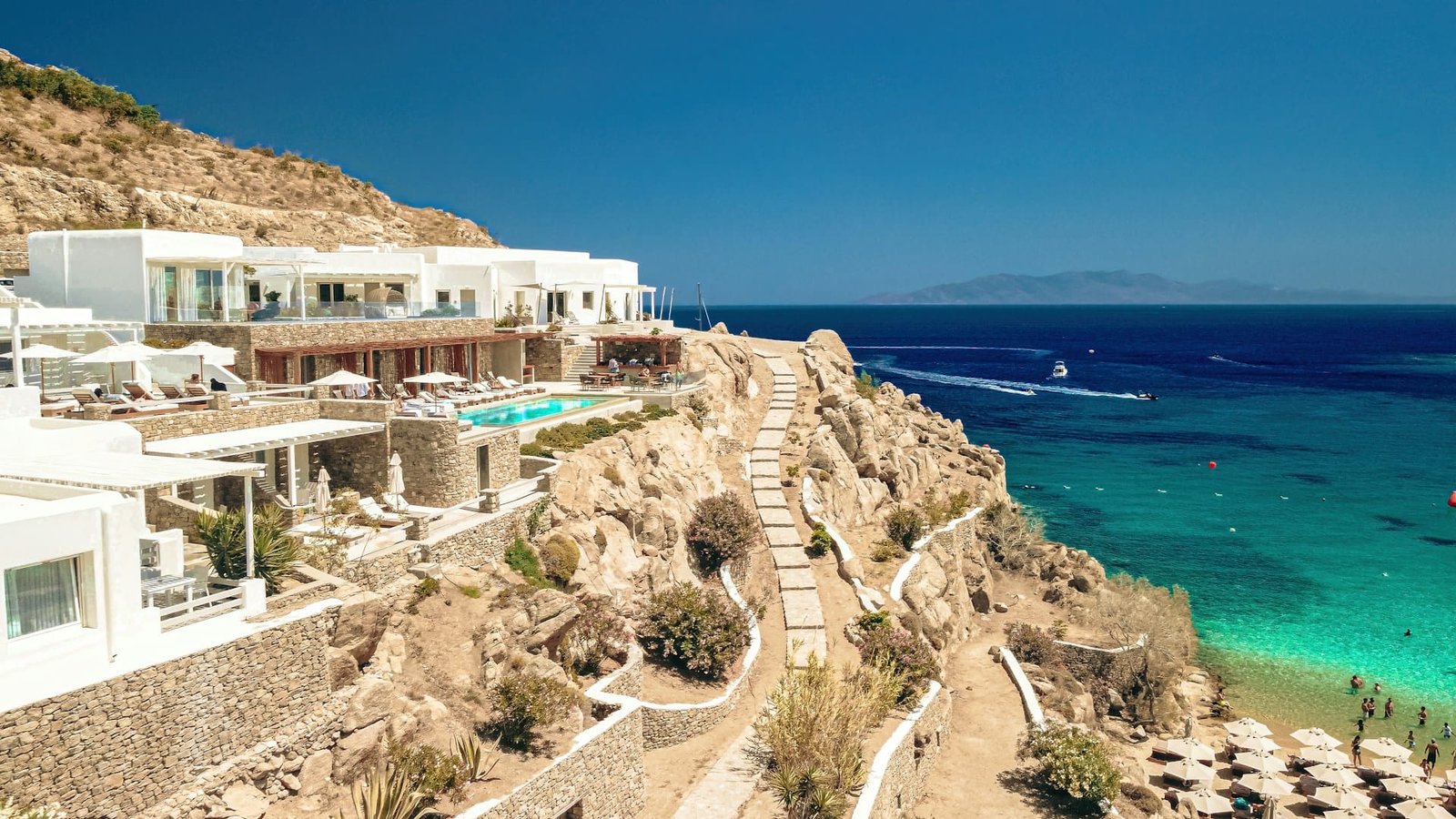
One of the best parts of visiting Greece for the first time is diving deep into its rich culture. Greece isn’t just about ancient ruins and beautiful beaches—it’s about the local experiences that make your trip unforgettable. From traditional villages to mouth-watering food, embracing Greek culture will make your trip feel more personal and authentic. Let’s explore how you can experience the real Greece, beyond the typical tourist spots.
Beyond the Tourist Trail: Unveiling Authentic Greece
It’s tempting to stick to the popular tourist spots like Santorini and Athens, but to truly immerse yourself in Greek culture, you need to venture beyond. I’ve found that the real magic of Greece often lies in its lesser-known regions, where locals still live by age-old traditions.
- Experiencing Traditional Greek Villages
If you want to feel like you’ve stepped back in time, head to places like Zagorochoria in Epirus or Pyrgi on the island of Chios. Zagorochoria is a collection of stone-built villages nestled in the Pindus Mountains, perfect for hiking and admiring traditional architecture. Pyrgi, on the other hand, is known for its striking geometric patterns on house facades. What I love most about these villages is how untouched they feel. People here are warm, friendly, and eager to share their way of life with visitors.
Why it works: These villages provide a unique and authentic glimpse into Greek rural life—ideal for first-time travelers looking to go beyond the mainstream destinations. - Learning a Few Basic Greek Phrases
You don’t need to be fluent in Greek to get by, but learning a few basic phrases can go a long way in connecting with locals. Simple greetings like “Kaliméra” (Good morning), or “Efharistó” (Thank you), make a big difference. I’ve noticed that whenever I try speaking Greek, no matter how basic, people are always more welcoming and appreciative.
Why it works: Making an effort with the local language shows respect and helps create meaningful connections during your visit. - Indulging in Greek Cuisine: Must-Try Dishes
Greek food is a must-experience part of your trip, and trust me, it’s way better when enjoyed at a local taverna. You can’t visit Greece without trying classic dishes like moussaka, a delicious baked casserole layered with eggplant and meat, or souvlaki, Greece’s famous grilled skewers. Another favorite of mine is tzatziki, a refreshing yogurt-based dip with garlic and cucumber. To find the best local food, I recommend asking the locals where they eat. Some of the best meals I’ve had were in small, family-run tavernas, far from touristy areas.
Why it works: Greek cuisine is an essential part of the culture, and trying local dishes in authentic settings will enhance your travel experience. - Understanding Greek Customs and Traditions
Greece is deeply rooted in tradition, and you’ll see this especially through its Orthodox religion and celebrations of national holidays. Attending a Greek Orthodox church service, even just to observe, can be a profound experience. If you’re lucky enough to visit during a local festival, you’ll witness music, dancing, and maybe even some plate smashing! One thing I love about Greece is how passionate the people are about their customs. Respecting these traditions, such as dressing modestly when visiting churches, will help you feel more integrated into the local culture.
Why it works: Understanding and respecting Greek customs helps you experience Greece in a way that goes beyond being just a tourist.
Essential Travel Tips for a Smooth Greek Vacation
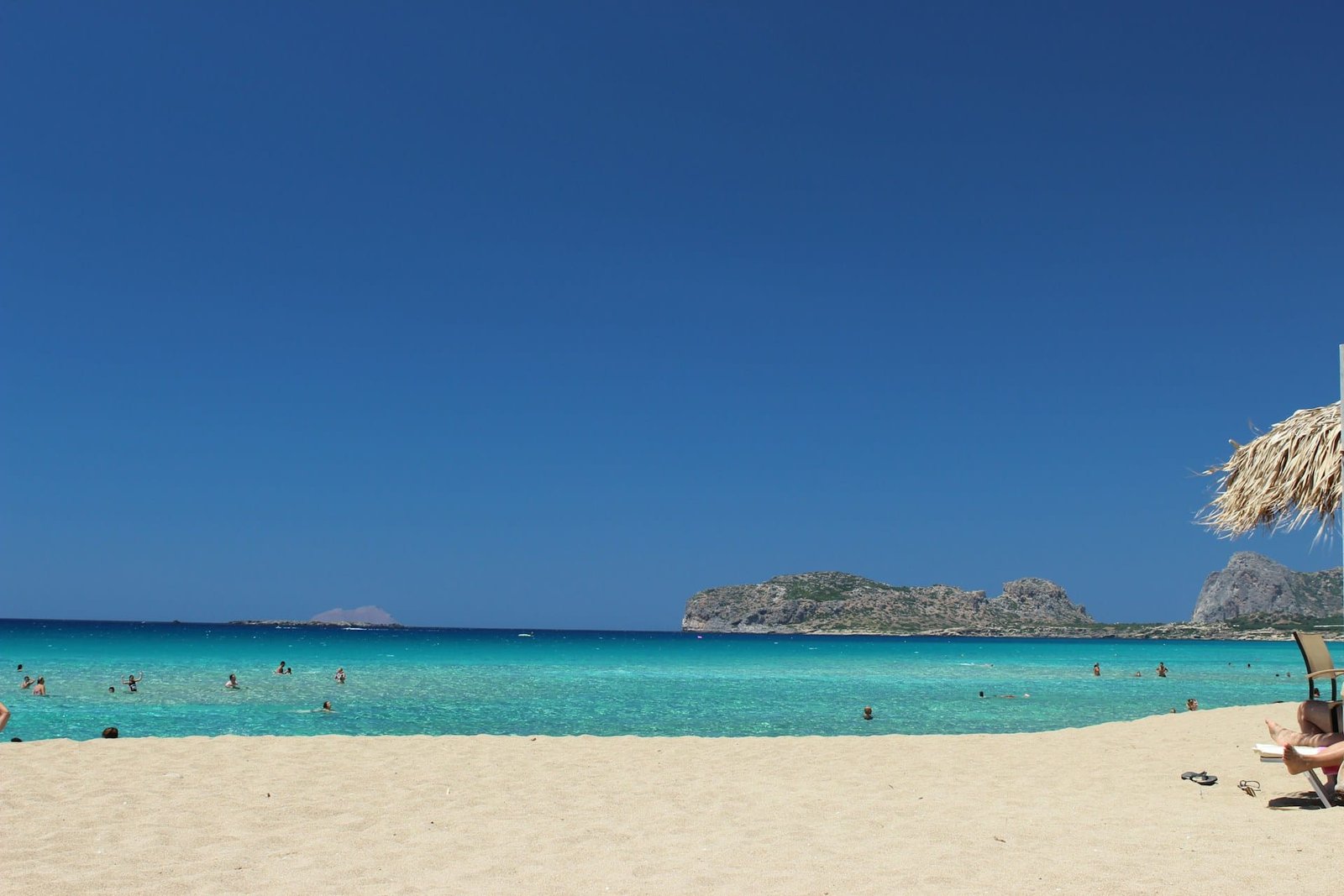
Having a memorable trip to Greece isn’t just about where you go, it’s also about making sure everything runs smoothly. Here are some essential travel tips to help you avoid common pitfalls and ensure your first visit to Greece is worry-free.
Transportation Options in Greece: Getting Around with Ease
Greece is a country with many beautiful islands and historic mainland destinations. Getting around can be tricky if you don’t plan ahead, but luckily, you have plenty of options to suit any travel style.
- Ferries: Island Hopping Essentials and Booking Tips
Ferries are the best way to travel between islands. Companies like Blue Star Ferries and Hellenic Seaways offer routes between popular islands like Santorini, Mykonos, and Naxos. I recommend booking your tickets in advance, especially during summer, when ferries fill up fast. One tip I always share is to check the wind conditions—high winds can sometimes delay ferries.
Why it works: Ferries offer flexibility and a scenic way to explore the islands. Planning ahead ensures smooth travel and avoids unnecessary stress. - Domestic Flights: Connecting Mainland Greece and the Islands
For longer distances, especially between the mainland and islands like Crete or Rhodes, consider a domestic flight. Aegean Airlines and Olympic Air are reliable options. I’ve flown with both and found that booking early often gets you the best price. Flights are quick, so you can maximize your time on the islands.
Why it works: Flights save time on longer routes and are ideal for travelers who want to pack more into a shorter trip. - Public Transportation: Options in Major Cities
If you’re sticking to the cities, public transportation is efficient and easy to use. In Athens, for example, the metro system is modern and convenient for getting around major attractions like the Acropolis and Plaka. Buses and taxis are also available, but be prepared for traffic, especially in the summer months. I personally prefer the metro because it’s faster and more straightforward for first-time visitors.
Why it works: Public transportation is affordable and efficient, making it ideal for navigating big cities like Athens. - Renting a Car: Pros and Cons
Renting a car gives you the freedom to explore at your own pace, especially if you’re venturing into rural areas like the Peloponnese or Northern Greece. However, roads can be narrow, and driving in Greece’s city centers can be stressful. I’ve rented cars in Crete and the Peloponnese, and while it was great for exploring remote beaches and mountain villages, navigating tiny streets required extra patience.
Why it works: Renting a car is perfect for travelers who want to explore off-the-beaten-path areas but may not be ideal for those uncomfortable with driving in foreign countries.
Staying Safe and Healthy in Greece (Precautions for a Worry-Free Trip)
Greece is generally very safe, but like anywhere, it’s good to take precautions to ensure a smooth, worry-free trip.
- Sun Safety Tips
Greece is sunny and hot, especially in the summer months. I always pack plenty of sunscreen (SPF 50 is a must) and make sure to stay hydrated. If you’re exploring during the day, try to avoid peak heat times between 12 PM and 4 PM. I’ve found that taking a break in the shade or a cool cafe during these hours makes the day much more enjoyable.
Why it works: Staying protected from the sun ensures you can enjoy your trip without suffering from sunburn or heat exhaustion. - Travel Health Insurance and Recommendations
Travel health insurance is something you don’t want to skip, especially when traveling abroad. Look for coverage that includes medical emergencies, trip cancellations, and lost luggage. I always check whether my insurance covers things like emergency evacuation, just for peace of mind.
Why it works: Having health insurance ensures that unexpected situations won’t ruin your vacation, allowing you to travel confidently. - Emergency Contact Information and Local Scams to Avoid
Greece is very safe, but like any tourist-heavy destination, you might encounter pickpockets in crowded areas, especially in Athens or on busy ferries. Keep an eye on your belongings and avoid carrying too much cash. If you ever need emergency assistance, dial 112 for general emergencies or 166 for an ambulance. Having these numbers saved in your phone is a tip I’ve used on all my trips.
Why it works: Staying informed about safety precautions allows you to enjoy your trip without unnecessary worry.
By following these travel tips and embracing Greek culture, you’ll ensure your first trip to Greece is not only unforgettable but also smooth and hassle-free.
Unforgettable Experiences in Greece (Make Memories That Last a Lifetime)

Your first trip to Greece should be about more than just ticking off famous landmarks. It’s about creating unique and unforgettable experiences that will make you want to come back again and again. From hiking ancient trails to sailing the Aegean, here’s how you can make the most of your visit to Greece.
Hiking the Ancient Trails: Exploring Greece’s Natural Beauty
Greece is home to some incredible hiking trails, with options for all fitness levels. Hiking here isn’t just about the challenge of the terrain, it’s about experiencing Greece’s wild beauty and stumbling upon ancient history along the way.
- Popular Hiking Routes for Different Fitness Levels
One of my favorite hikes is the Samaria Gorge in Crete, a 16 km trail that takes you through Europe’s longest gorge, with towering cliffs and plenty of wildlife. It’s challenging but worth every step, especially if you’re fit and up for a full day’s hike. If you’re looking for something more moderate but equally stunning, try hiking up Mount Olympus, the mythical home of the gods. The E4 trail offers various routes, and even beginners can enjoy parts of it.
Why it works: Greece’s diverse landscape makes it perfect for hikers of all levels, combining fitness with incredible views and ancient sites. - Breathtaking Views and Historical Sites Along the Way
What makes hiking in Greece so special is how the trails often lead you to incredible historical spots. On your hike, you might come across ancient ruins, monasteries perched on cliffs, and coastal views that seem to stretch forever. I’ve seen monasteries on the edge of cliffs in Meteora, and the view from up there is nothing short of magical. It’s not just a hike; it’s like stepping back in time.
Why it works: Combining breathtaking natural beauty with historical landmarks makes these hikes not just a physical activity but an enriching cultural experience.
Sailing the Aegean Sea: Experience the Magic of the Greek Islands by Boat
If you think the Greek islands are stunning from land, wait until you see them from the water. Sailing the Aegean is a must for first-time travelers—it’s an adventure that lets you explore Greece’s coastlines and secret coves that you can’t reach by foot.
- Chartering a Sailboat or Joining a Sailing Tour
Whether you charter your own boat or join a group sailing tour, being on the water is the best way to see the islands. I’ve sailed the Cyclades, and let me tell you, the experience of waking up to the sight of Santorini’s cliffs from the deck of a boat is unbeatable. If you’re new to sailing, companies like Sail Greece offer packages for beginners, with options to either sail yourself or have a skipper guide you.
Why it works: Sailing offers flexibility and the chance to explore less crowded spots, giving you a more intimate and adventurous experience of the islands. - Island Hopping and Secluded Coves Accessible Only by Sea
One of the best parts about sailing is discovering hidden spots like secluded beaches and coves that are only accessible by boat. I’ve anchored in quiet bays off the coast of Naxos and snorkeled in crystal-clear waters without another soul around. If you love the idea of exploring places away from the crowds, this is for you.
Why it works: Island hopping by boat offers exclusive access to Greece’s secret spots, providing a peaceful alternative to the busier tourist beaches. - Snorkeling and Diving in Crystal-Clear Waters
Greece’s waters are perfect for snorkeling and diving. Some of the best underwater spots include the coastline around Crete and the small island of Antiparos. I’ve snorkeled in both, and the water was so clear, you could see all the way down to the colorful marine life below. You’ll also find shipwrecks and underwater caves to explore, especially near Zakynthos.
Why it works: Exploring underwater adds another layer to your Greek adventure, especially in places where the water is so clear that it feels like swimming in an aquarium.
Unveiling Greece’s Rich Archaeological Heritage
You might think of the Acropolis when you hear about Greece’s ancient ruins, but there’s so much more to explore. Beyond Athens, you’ll find a treasure trove of archaeological sites scattered across the country.
- Exploring Ancient Ruins Beyond the Acropolis
Don’t stop at the Acropolis—head to Olympia, the birthplace of the Olympic Games, or visit the Temple of Poseidon at Cape Sounion for a sunset view you’ll never forget. I personally loved Knossos Palace in Crete, where you can walk through the remains of the Minoan civilization and imagine the grandeur of one of Europe’s oldest cities.
Why it works: Ancient Greece is everywhere, and visiting these sites allows you to dig deeper into the country’s history and culture. - Visiting Archaeological Museums and Historical Sites
For museum lovers, you can’t miss the National Archaeological Museum in Athens or the Heraklion Archaeological Museum in Crete. They house impressive collections of artifacts, from ancient sculptures to stunning mosaics. I always recommend visiting a museum after seeing the ruins—it helps tie the history together and adds context to what you’ve just experienced.
Why it works: Museums offer a deeper understanding of the ancient sites you visit, enriching your overall experience of Greece’s rich history.
Beyond the Guidebook: Hidden Gems of Greece
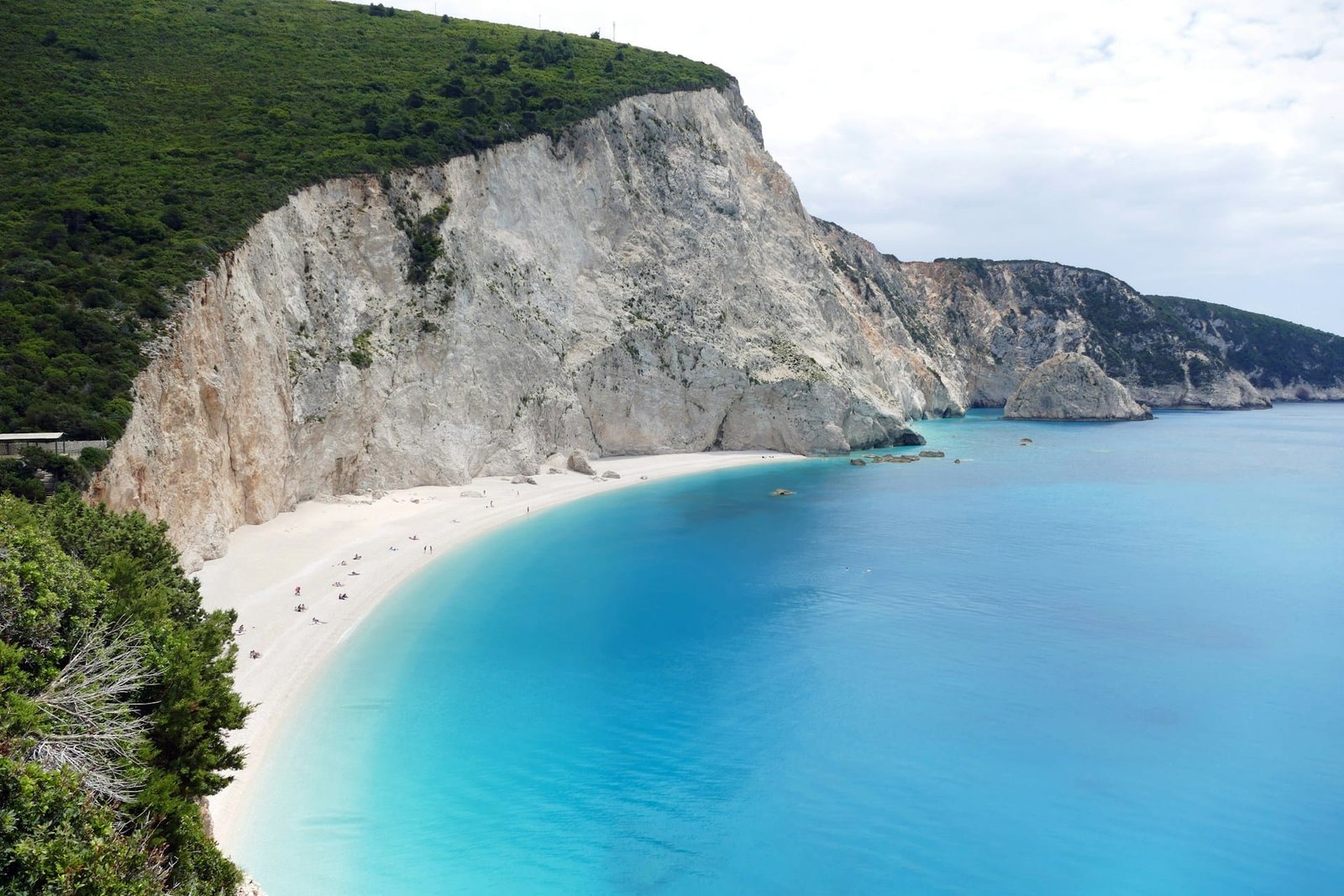
If you’re the type of traveler who loves to go beyond the beaten path, Greece has plenty of hidden gems waiting to be discovered. From secret beaches to charming villages, these spots offer a quieter, more authentic side of Greece.
Secret Beaches and Off-the-Beaten-Path Destinations
Greece’s famous beaches are beautiful, but the real gems are the hidden ones that not many tourists know about. I’ve spent many summer days finding these hidden coves, and they’re well worth the extra effort to reach.
- Hidden Beaches
One of my favorite hidden beaches is Egremni Beach in Lefkada. It’s a bit of a trek to get there, but once you arrive, you’re greeted with pristine sand and turquoise water. Another one to check out is Voutoumi Beach on Antipaxos, a tiny island with some of the clearest waters I’ve ever seen.
Why it works: These secret beaches offer a peaceful escape from the crowds and allow you to enjoy Greece’s natural beauty in solitude. - Lesser-Known Islands and Villages
Skip the usual island circuit and explore places like Symi and Tinos. Symi’s colorful harbor is straight out of a postcard, while Tinos is a pilgrimage site known for its beautiful churches and quiet charm. The Zagori region in northern Greece is another off-the-beaten-path destination I recommend, with its dramatic stone bridges and stunning landscapes.
Why it works: These hidden spots provide a more relaxed and authentic experience of Greece, far from the usual tourist trail.
Local Festivals and Cultural Events (Plan Around These Unique Experiences)
To truly understand Greek culture, you need to experience its festivals and events. Whether it’s a major national holiday or a local village celebration, these gatherings bring the spirit of Greece to life.
- Major Events Based on Travel Season
If you visit during Easter, you’ll get to witness one of the most important religious holidays in Greece. I’ve seen Easter processions in Corfu, and they’re absolutely magical, with candlelit ceremonies and fireworks lighting up the night sky. In the summer, don’t miss the Athens & Epidaurus Festival, where you can watch ancient Greek plays performed in the original theaters.
Why it works: Timing your trip around these major events offers a deeper connection to Greek traditions and culture. - Traditional Village Festivals and Regional Holidays
If you’re looking for a more local experience, try to catch a panigyri, a traditional village festival where locals celebrate their patron saints with music, food, and dancing. I once attended a panigyri on the island of Ikaria, and it was one of the most joyous, community-focused events I’ve ever been to. For something different, visit Patras during Carnival, the biggest and most colorful carnival in Greece.
Why it works: Local festivals let you join in the celebration and experience the lively spirit of Greek hospitality firsthand.
By discovering these hidden gems and immersing yourself in local festivals, you’ll experience a side of Greece that most first-time visitors miss. Whether you’re lounging on secret beaches or dancing at a village panigyri, these experiences will make your trip truly unforgettable.
Conclusion: A Farewell to Greece, Until Next Time!
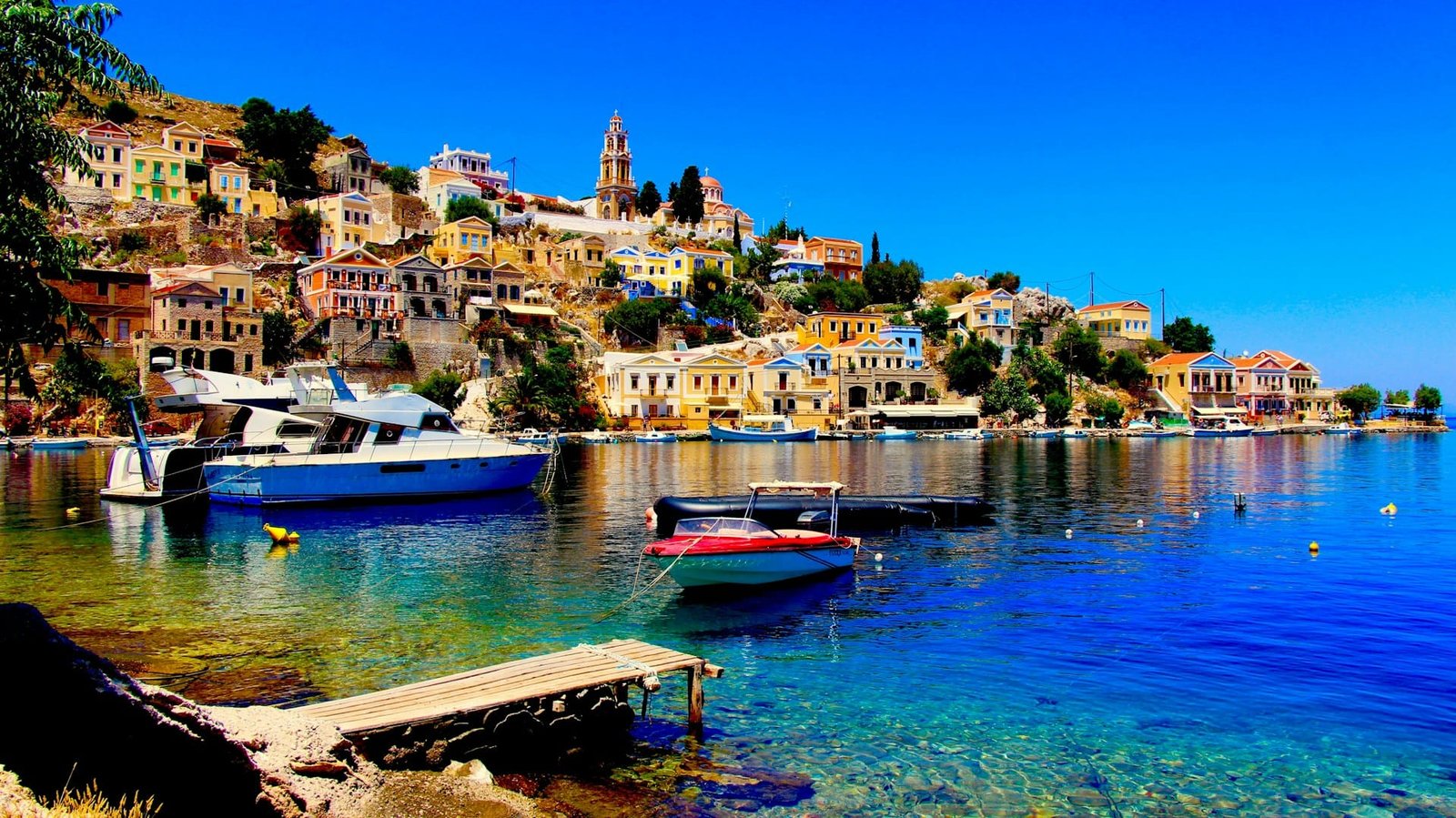
Your first adventure in Greece is bound to be one for the books. Whether you immersed yourself in the rich Greek culture, hiked ancient trails, sailed the breathtaking Aegean, or explored hidden gems off the beaten path, there’s something unforgettable for every traveler here. The blend of history, stunning landscapes, and warm hospitality makes it a destination you’ll want to return to—again and again.
Why Greece Works for First-Time Visitors
The beauty of Greece is how it balances its iconic tourist spots with its hidden treasures. From the bustling streets of Athens to the serene beaches of Lefkada, every corner of Greece offers a different experience. I’ve seen travelers light up after discovering small villages like Zagori, or the excitement of trying local dishes at a family-run taverna. It’s these little moments that make your trip feel personal and memorable.
Recap of the Highlights:
- Culture and Tradition: You embraced local festivals and got a taste of Greece’s rich customs.
- Beaches and Islands: You found secret beaches and sailed the Aegean Sea like a pro.
- History and Ruins: From the Acropolis to hidden ancient ruins, you walked through millennia of history.
- Authentic Greek Experiences: You hiked through stunning landscapes, discovered charming villages, and indulged in the best of Greek cuisine.
Staying Connected with Greece After Your Trip
You’ve fallen in love with Greece—so what’s next? Even after you return home, there are plenty of ways to keep a little bit of Greece with you.
- Bring Greece Home with Souvenirs
One of my favorite things to do is collect small, meaningful souvenirs. Look for handmade ceramics, local olive oil, or honey from the region you visited. They not only make great gifts but remind you of your time there every time you use them. - Stay in Touch with Locals
Greece’s hospitality is hard to leave behind, and staying connected with the people you meet can keep that connection alive. Many locals are active on social media and love staying in touch with visitors. You can join Facebook groups or follow local Greek travel pages for tips and ideas for your next visit. - Plan Your Next Trip
You might not be able to see everything on your first trip, and that’s okay! Greece has so much to offer, from the Dodecanese islands to the Peloponnese. Start making a list for your next adventure, whether that’s exploring more off-the-beaten-path spots or diving deeper into the rich history and culture of the mainland.
As you close this chapter of your Greek journey, remember—Greece is a place that stays with you long after you leave. The sights, the sounds, and the warmth of the people will call you back. So, until next time—Kali Epistrofi! (Safe travels back!)
And when you start planning your next trip to Greece, don’t forget to revisit this guide for more inspiration and tips.
FAQ Section: First-Time Travel to Greece
When is the best time to visit Greece for first-time travelers?
The best time depends on your goals. For beaches, go in summer (June-August), but I love the shoulder seasons—spring (April-May) or fall (September-October)—for fewer crowds and pleasant weather. I’ve visited in spring, and it’s ideal for sightseeing without the heat.
Do I need a visa to visit Greece?
If you’re from the US, UK, or EU, you don’t need a visa for short trips under 90 days. Just make sure your passport is valid for at least 6 months. I’ve traveled multiple times, and keeping track of these details makes entry smooth.
How do I get around in Greece?
I’ve used ferries for island hopping, which is the most scenic way! For mainland travel, buses are cheap and reliable, but renting a car gives you more freedom. Just be ready for narrow roads in villages!
What are the must-visit destinations in Greece for first-time travelers?
Start with Athens for the ancient history, then head to Santorini for stunning views and Mykonos for nightlife. I also recommend Crete for its mix of beaches and culture. You can’t go wrong with these.
Is Greece expensive for first-time visitors?
Costs depend on where you go. Islands like Santorini are pricier, but I’ve saved by visiting in the shoulder season and staying in local guesthouses. You can eat well for under €10 at a taverna.
What are some hidden gems in Greece that first-time travelers should visit?
I’ve loved exploring lesser-known spots like Zagori villages and the island of Naxos. They offer authentic Greek culture without the tourist crowds, making them great for a first trip off the beaten path.
What should I pack for a trip to Greece?
Bring light clothes, comfy walking shoes, sunscreen, and a hat. I always pack a swimsuit for spontaneous beach trips. If you’re going in spring or fall, a light jacket is useful for cooler evenings
Is Greece safe for solo travelers, especially women?
Greece is very safe. I’ve traveled solo, and it’s all about staying aware, especially in busy tourist spots where pickpocketing can happen. Stick to well-lit areas at night and always trust your gut.
What are some must-try Greek dishes?
I always recommend trying moussaka, souvlaki, and tzatziki. Don’t miss baklava for dessert! The best food is often in small, family-run tavernas. Ask locals for their favorite spots—they know the hidden gems.
Can I use English in Greece?
Yes! English is widely spoken in tourist areas, but I like learning a few Greek phrases, like “kalimera” (good morning) or “efcharistó” (thank you). Locals always appreciate the effort, even if your Greek isn’t perfect!





